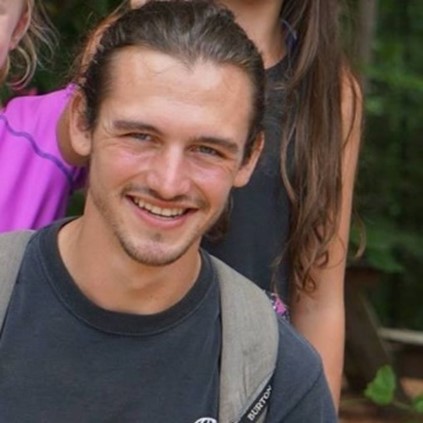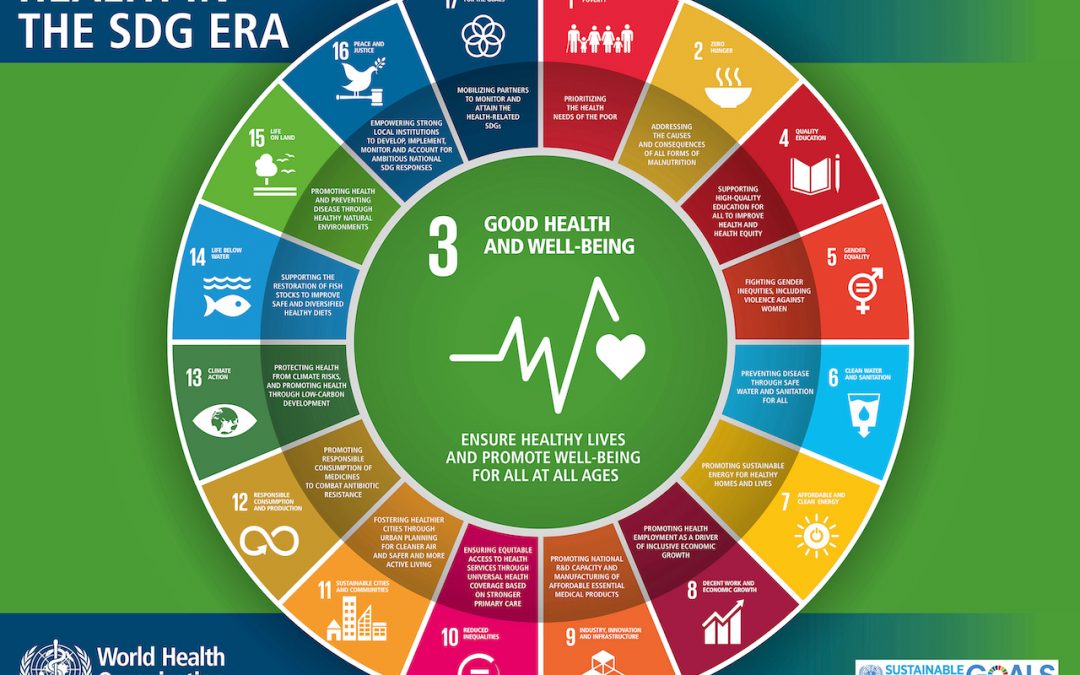Now more than ever it feels necessary to, at a very minimum, encourage deliberation on the importance of adopting more sustainable practices in physiotherapy. Major fields such as engineering and fashion have already begun the process of teaching students about sustainability as a vital part of the industries’ futures. The physiotherapy profession and healthcare as a whole, cannot get left behind.
In September 2020, I started my 2nd year studying physiotherapy at Saxion University in the Netherlands. At the same time, I was given the great opportunity to begin an extra-curricular course on research and innovation, with a focus on working towards the UN Agenda 2030 Sustainable Development Goals (SDGs). It’s an unrestrictive program in which we must either develop or join a project that deepens our knowledge and contributes to the progress of the SDGs.
To better understand where I could get involved, I began researching ways in which physiotherapy can contribute towards the SDGs. I came across only a handful of texts, most of which looked at the contributions that could be made towards SDG 3 (Ensure healthy lives and promote well-being for all ages) by moving from a curative approach to a more preventative one to combat things such as lifestyle associated chronic diseases and child mortality rates. It was also discussed that physiotherapists are in a good position to influence SDG 4 (Ensure inclusive and equitable quality education and promote lifelong learning opportunities for all) and SDG 5 (Achieve gender equality and empower all women and girls) [1,2]. However, I felt as though more was possible.
Then, I came across the thought-provoking papers by Filip Maric and David Nicholls in which they call for a new environmental physiotherapy [3] and highlight the potential for a major paradigm shift in physiotherapy [4]. I knew instantly that I had to be involved and that this was a sign that the movement towards a more holistic and sustainable future in physiotherapy was beginning.

Jordan Spencer
BSc Physiotherapy Student
Jordan is part of the international class studying physiotherapy at Saxion University in the Netherlands and is part of the Excellence Track: Research on Innovative Organisations. He spends his free time bouldering, volunteering and travelling. One day, he hopes to specialise in developmental paediatric physiotherapy.

As a student thinking about the ways in which I can contribute towards the SDGs, I wonder if I even have enough perspective or outlook about the physiotherapy profession yet to help. That said, forcing people out of their comfort zone is usually the way most innovative ideas develop. It can sometimes take a newcomer’s perspective to see past any limitations and come up with an idea that might just change the future. Teaching students about sustainability in physiotherapy will, as suggested in the EPT Agenda 2023, at the very least, create awareness among future clinicians, but it could also be the reason that a revolutionary idea changes the way physiotherapy is forever.
As we start to think about how progress towards good health and well-being (SDG 3) and the other goals are positively correlated, physiotherapists seem to have a unique position to inspire that progress among patients and within the health discipline. We can work towards reducing poverty (SDG 1) and inequalities (SDG 10) by helping to make physiotherapy more accessible and working on preventative care. Occupational health can ensure decent work (SDG 8) by guaranteeing workers have safer workplaces and remain healthy. We can even encourage more responsible consumption (SDG 12) by moving away from the TheraBand’s that break after a few months and adopting more outdoor interventions. All of which, will not only ensure good health and wellbeing, but will also work towards the mutual success of the goals together (SDG 17).
I’ve spent the last 5 years working at children’s summer camps in the USA and witnessing first-hand the benefits that being outdoors has on children and their physical, social, and emotional development. Many children come to camp struggling with problems such as stress and anxiety but leave with a changed perspective after experiencing nature and accomplishing great things. When they return to school after having overcome these problems, they have improved concentration and have a wide range of new skills, giving them a better chance at quality education (SDG 4). If these children are the future, the ones that go on to contribute great things, every aspect of society that the SDGs aim to progress may in turn be affected in some way.
It’s obvious to me that the environment never stops being an important part of our holistic wellbeing as a species. Health disciplines such as psychotherapy are seeing a big push towards outdoor therapies and we now know the impact that psycho-social factors have on a multitude of functional impairments. In my opinion, it seems necessary that more should be taught to us about the importance of the SDGs and getting patients active outside.

Environmental physiotherapy and the UN SDGs aren’t part of many physiotherapy curricula yet, but I deeply wish they were! Everything that I have learned about them so far has contributed significantly to my overall growth in becoming a talented physiotherapist. The wide range of possibilities that the SDGs open for physiotherapists to contribute to has broadened my knowledge about the profession I’ll soon be entering by forcing me to think about physiotherapy in a different light. Furthermore, considering the ways in which I can tie in my love for the world, nature and caring for others has amplified my motivation and given me an entirely different outlook on what the future of physiotherapy could, and should, look like. Now, a future that I am able to clearly envision is one in which children are able to get out of the wall bound clinics and work on their development with physiotherapists in parks, on nature trails or in specialised outdoor camp programs. Interventions that will not only stimulate a child’s desire to grow and learn through playful curiosity, but to learn about and empathise with the planet that we are all a part of.
References
[1] Narain S, Mathye D. Do physiotherapists have a role to play in the Sustainable Development Goals? A qualitative exploration. S Afr J Physiother. 2019;75(1):466. Available from: https://pubmed.ncbi.nlm.nih.gov/31061910/
[2] Virag T. Opportunities for Physical Therapists Among the New United Nations Agenda. Physiospot. Accessed: 21/01/2021. Available from: https://www.physiospot.com/2015/10/27/opportunities-for-physical-therapists-among-the-new-united-nations-agenda/
[3] Maric F, Nicholls D. A call for a new environmental physiotherapy – An editorial. Physiotherapy Theory and Practice. 2019;35(10)905-907. Available from: https://www-tandfonline-com.saxion.idm.oclc.org/doi/full/10.1080/09593985.2019.1632006
[4] Maric F, Nicholls DA. Paradigm shifts are hard to come by: looking ahead of COVID-19 with the social and environmental determinants of health and the UN SDGs. European Journal of Physiotherapy. 2020;22(6):379-381. Available from: https://www-tandfonline-com.saxion.idm.oclc.org/doi/abs/10.1080/21679169.2020.1826577


Such a beautiful post! I hope that this message gets sent across to many other physiotherapist and that we can all physically see the impact it’ll bring.
Thanks for your kind comment, Juliette! I agree. I’m both excited and hopeful to see the changes to come within the healthcare field!
Jordan thank you for your post. It is so important to have a students perspective and to confirm the path we should all be on. Congratulations to your programme for including the module in such a pro active and integral manner. I would love to hear more about if it was graded or assessed how that was done. There is huge need for leadership in this area and the younger physiotherapists are often best informed. Your future travels will inspire more links between the SDGs and their links to implementing basic human rights so that no one is left behind. Please never loose your ideals the profession needs them in order to remain relevant. Congratulations on an inspiring post. Welcome and best wishes as you start your professional career in Physiotherapy.
Thanks for your kind and motivating comment, Maca! The program runs alongside my regular course from the second year onwards. I’m yet to be graded on anything but from what information I have, the project is graded very generally on things like quality of work, innovative value, approach, and reflection on the process and development competencies. I think this lax structure has inspired us to be creative in the development of our projects and how we implement the SDGs into them.
I agree in the new way of thinking about pfysioterapi.. Intresting.u
Thank you Solfrid!
Thanks for the great insights and inspiring statements you made! As you said there is so much to explore and envision in physiotherapy that actually fits the SDG’s and has the potential for an exciting change of perspective towards environmental physiotherapy. It is encouraging and so crucial to see students that have such a holistic perspective so early in their studies. My thesis has been about a nature-based homework program and I can only encourage every physio student to seriously consider the power of the outdoors for patients. You are studying at the same university as I have been, so I am even more keen to connect with you soon!
Thanks for your thought-provoking comment, Thies! I read the post you made about your thesis a while back and it encouraged and inspired me too. I agree, we should connect soon. I’d love to hear more about your thesis and how you’re managing to implement environmental physiotherapy into your normal practice nowadays.
Thanks for your post Jordan. My thoughts exactly- physiotherapists have the training, credibility and integrity to be leaders in the preventive health and well being space. Keep up the great work and keep your eyes out for our LifeFit Program in SMHS, Perth, Western Australia!
Thanks for your nice comment, Dale. I’ll be sure to look out for it!
Thanks for posting this Jordan. I have long advocated that all learning in every subject at every level can be underpinned to a lesser or greater extent by the UN SDGs. I have written a paper on a new paradigm of learning that uses this principle with the aim ‘to make the world a more beautiful, more sustainable and more enjoyable place for everyone’.
Excellent